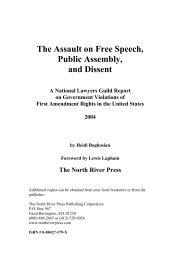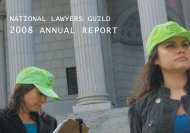Does your library have National Lawyers Guild Review?
Does your library have National Lawyers Guild Review?
Does your library have National Lawyers Guild Review?
You also want an ePaper? Increase the reach of your titles
YUMPU automatically turns print PDFs into web optimized ePapers that Google loves.
David GespassCITIZENS UNITED AND THEFETISHISM OF THE CORPORATIONThe Supreme Court’s decision in Citizens United v. Federal ElectionCommission 1 is, like so many things, both a threat and an opportunity. It is athreat not just for the obvious reasons that are usually put forth by DemocraticParty functionaries and various liberals trying to raise money by opposingthe decision, but because of its insidious and usually ignored assumptionsabout corporations. Ironically, it is an opportunity for very much the samereasons and because it has been so widely criticized and deplored. A clearunderstanding of exactly what Citizens United stands for allows for real educationacross the whole population. This is a chance for genuine progressivesto reach beyond their usual base and build a movement that goes beyondthe usual suspects and aims at the foundations of economic (and, therefore,political) power in the United States.The usual criticism of the decision is that it gives “corporations” too greatan ability to influence the political process. Of course, by “corporations,”people mean the huge transnational corporations that enjoy perpetual existenceand control billions of dollars. The small, family-owned corporationsdo not really count in the political calculus that the critics of Citizens Unitedare concerned with. The fact is, however, that the decision does not give“corporations” such disproportionate power. It gives people, people whoalready <strong>have</strong> disproportionate power because of their wealth, that power.That fact is masked by the fetishism of the corporation.What is a fetish? It is an inanimate object that is believed by its worshipersto be imbued with magical qualities. What then is a corporation? Well, let’sstart with what it is not. A corporation is not a living, breathing organism. Ithas no consciousness, it cannot think, feel or even act of its own volition. Itis completely artificial. It is not born or hatched. It has no mother or father.It comes into existence because a few pieces of paper called articles of incorporationare filed with a probate judge somewhere..Yet the Supreme Court has imbued this inanimate invention with humanpowers. So far as the Court is concerned, corporations are not only able tospeak, but <strong>have</strong> the right to do so. But when corporations “speak,” it is notthe corporation that forms the words but the people who control it. Karl___________________David Gespass practices law in Birmingham, Alabama and is president of the <strong>National</strong><strong>Lawyers</strong> <strong>Guild</strong>. He can be reached at ThePasss@aol.com.


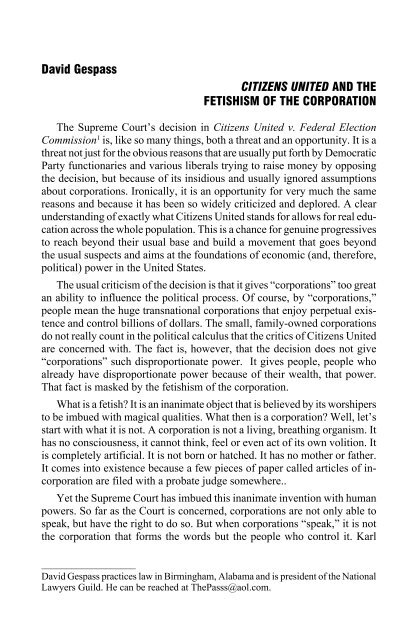
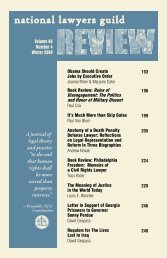

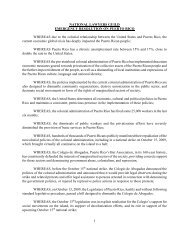
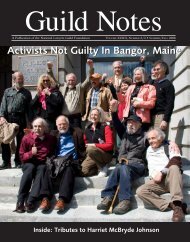
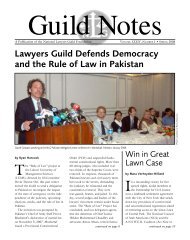
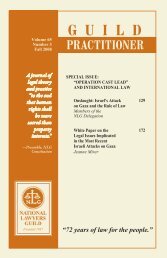

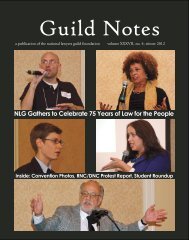
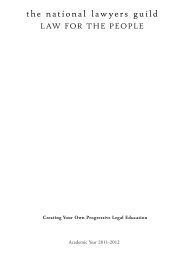
![NLGRev 68-2[1].indd - National Lawyers Guild](https://img.yumpu.com/30820772/1/167x260/nlgrev-68-21indd-national-lawyers-guild.jpg?quality=85)
